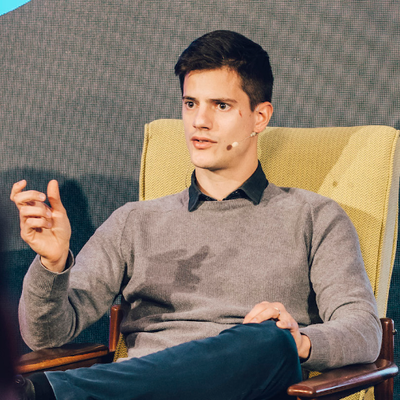4 Valuable Tips for Moving From a Senior Engineer Role to CTO
 Sergio Pereira
Sergio Pereira
"I'm pitching myself to move from Senior Engineer to CTO.
Do you have any tips to prepare my mindset?"
An engineer asked me in the comments section of a recent tweet.
If you're a software engineer looking to move to a CTO role, plan yourself before making the move.
These are my tips for anyone moving to a CTO role.
1. Understand What's in Scope for the Startup CTO Role
 Usually, it spreads in 3 different directions:
Usually, it spreads in 3 different directions:
- Technology
- People
- Processes But the weight of each of those directions massively changes depending on the stage, team, and type of company it is.
At such an early stage, there isn't much to manage in terms of people or processes.
So, the core function of the CTO is building technology, which isn't much different from a Software Engineering role, at core.
The transition should be smooth in regard to that core function.
2. Where's the Feature Spec?
 Yes, at such an early stage, there's no well-defined product specification.
Yes, at such an early stage, there's no well-defined product specification.
In fact, the startup is pre-product-market-fit, which means you're still finding the ideal product proposition that will land sales, and iterating towards it.
At such an early-stage startup, you don't have a feature spec to implement.
In fact, as the CTO, you'll be expected to:
- Create the MVP spec (along with the co-founder and team)
- Build the tech to fulfill that MVP spec
- All while you validate the proposition with clients
As Engineers, we over-scope by default. We love to build that extra feature. Or implement that background worker properly.
All of that adds another day and another week here and there.
While it's very common, it's often a cause of frustration and ultimately failure.
3. Optimising for Short Term vs Long Term
 This is the biggest mindset shift from Software Engineer to Startup CTO.
This is the biggest mindset shift from Software Engineer to Startup CTO.
At most tech companies, especially the most sophisticated ones, technology development follows a set of processes that optimize for the long term.
Such long term focused processes measure things like:
- Absence of bugs -> This means thorough testing
- Robustness -> This means redundancy to avoid downtimes
- Scalability -> This means service-oriented architectures that allow heavier loads
These things are mostly irrelevant for an early stage startup. As such, you need to strip off this "quality-first" mindset that you had as a Software Engineer.
On the contrary, in a startup, you need to adopt a "speed-first" mindset.
This means optimizing for the lowest possible time to market.
A few things you need to be comfortable doing are:
- Build features using off-the-shelf tools
- Do close to zero tests
- Have no dev or staging environments
If you struggle with de-scoping ruthlessly in the early days, please read some reference materials on the topic, and seek mentorship from more experienced CTOs who've gone through it.
For me, a key reading was the essays by @paulg.
4. What's Your Personal Runway?
 Startups take time.
Startups take time.
- The first paying client will take longer than you expect
- Fundraising will take longer than you expect
- All this causes your first salary to be much further away into the future than you expect right now
This was the biggest source of anxiety for me, in my first startup.
My advice: Plan for it!
Do the math for your personal runway (as in number of months you can sustain your life without a salary)
If you don't have 12+ months of runway, consider getting a freelance gig that you can do in 5–10 hours a week.
It doesn't hinder your startup work, but grants you liquidity and peace of mind.
Could be a game-changer.
Follow me for more knowledge about remote work
I'll be publishing new articles every week, and new social media content every day. If you enjoyed this article, follow me on Twitter or Linkedin, and stay in the loop. Share my content and drop a comment there. Let's help more people learn about remote work.
Subscribe to my newsletter
Read articles from Sergio Pereira directly inside your inbox. Subscribe to the newsletter, and don't miss out.
Written by

Sergio Pereira
Sergio Pereira
I am Sergio Pereira. I’ve been building technology for the last 15 years, and I’ve worked as a Startup CTO since 2014. I love Startups, and love to work with Founders to transform their promising business idea into a product shipped to fulfil that market opportunity, and then help them grow from a nimble operation into a fully fledged company aimed for scale. I’ve been a Startup CTO for 8 years, twice as a co-Founder. And I’ve worked with more than 10 startups as a Fractional CTO. For the last few years I've been focused on Fintech. I launched Income Share Agreements for the first time in Europe, and deployed a successful solution to alleviate the student debt burden in the US. As a Fractional CTO I’ve worked with companies in payments, lending APIs, KYC/AML funnels, NFTs and other Fintech use cases. I’ve also worked with startups in eCommerce, HR, Legal and other fields, despite my focus in Fintech. When it comes to technology I’m “stack agnostic”, as I’ve worked with multiple stacks (Javascript, Java, Python, Ruby, PHP, Solidity), cloud providers (AWS, Azure, GCP, Heroku) and tools. I usually evaluate the constraints and trade offs and decide on the best stack for each specific company context and situation. I’m very bullish on remote work. I have worked remotely since 2017, and have been building remote teams since then. Hiring and managing engineers is one of my specialties, and finding the best talent around the world became also a passion. Embracing a global talent pool has been a key competitive advantage for me as a Startup CTO, and I’ve evolved my async processes to make my teams more performant and inclusive. Some of my duties as a Startup CTO: Engage closely with Founders to understand the company’s business goals and priorities. Own tech roadmap, cost structure and discuss scope<>cost trade offs with Founders. Own recruiting. I source, interview, hire and onboard engineers, designers, data scientists, etc into my teams. Manage day to day tech delivery, from feature specs, to managing engineers and coordinating releases. Engage with external stakeholders (clients, partners, vendors, investors) as needed for due diligence, integrations, etc. Lead compliance and security, usually high stakes in the Fintech space